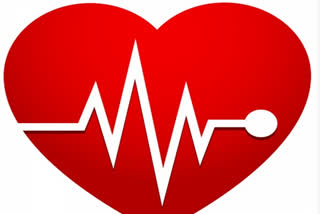Hyderabad: With machine learning, Johns Hopkins researchers are trying to identify which COVID-19 patients are at risk of adverse cardiac events such as heart failure, sustained abnormal heartbeats, heart attacks, cardiogenic shock and death.
The team recently received $195,000 Rapid Response Research grant from the National Science Foundation.
Researchers said that the increasing evidence of COVID-19’s negative impacts on the cardiovascular system highlights a great need for identifying COVID-19 patients at risk for heart problems.
The Murray B. Sachs Professor in the Department of Biomedical Engineering of the Johns Hopkins University Schools of Engineering and Medicine and the project’s principal investigator Natalia Trayanova said: “This project will provide clinicians with early warning signs and ensure that resources are allocated to patients with the greatest need.”
The Johns Hopkins Health System (JHHS) will collect data from more than 300 COVID-19 patients admitted with ECG, cardiac-specific laboratory tests, continuously-obtained vital signs like heart rate and oxygen saturation, and imaging data such as CT scans and echocardiography. Through this data, they will train the algorithm.
The algorithm will be tested with data from COVID-19 patients having heart injury at JHHS or other nearby hospitals.
